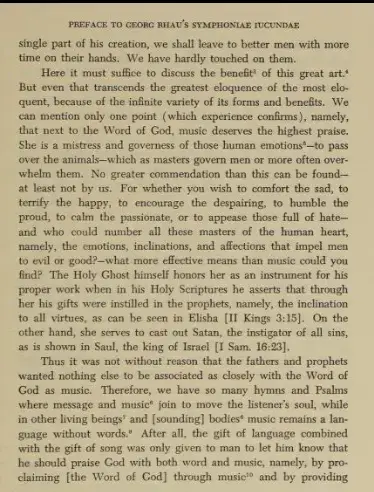Lutheranism is a branch of Christianity that emerged in the sixteenth century during the Protestant Reformation. It is rooted in the work of Martin Luther, a German monk, priest, and theologian, who sought to bring the Church back to the authority of Scripture and the central message of the Gospel. Lutheranism is a confession of faith that emphasizes salvation by grace through faith in Jesus Christ and the importance of God’s Word and Sacraments in shaping the life of the believer. To understand Lutheranism, we need to examine its historical roots, its view of human nature and sin, the Law and the Gospel, the doctrine of justification, the means of grace, worship practices, and the Christian life.
Before we get into this article, I would like to inform you that I, Gabriel, am indeed a Lutheran. I tend not to emphasize my personal denominational or doctrinal views. But given this article is on the confession I am a part of, I feel the need to be open and transparent. That said, TrinityApologetics is an ecumenical ministry with the goal to build up and strengthen your faith no matter what denomination you are part of.
Origins of Lutheranism
Now most of you probably already know this, however for those who didn't know in the early 1500s, the Church in Europe had become deeply entwined with human traditions and practices that, in Luther’s view, obscured the Gospel. Particularly practices such as the sale of indulgences and the belief that salvation could be earned through works prompted Luther to challenge the Church’s authority. He argued that salvation is a free gift of God, received through faith in Jesus Christ (Ephesians 2:8–9), and that the Bible alone is the ultimate authority in matters of faith and life (2 Timothy 3:16). This principle, known as Sola Scriptura, became a foundational principle of Lutheranism. Luther’s insistence that faith alone is the means by which humans are justified before God (Romans 3:28), known as Sola Fide, challenged the theology of his day and set the stage for a widespread reform movement (AC IV).
The Lutheran Reformation was not intended to create a new church but to restore the Church to the truth revealed in Scripture. Luther’s Ninety-Five Theses, posted in 1517, ignited debate, calling attention to abuses in the Church and the need to return to the Gospel. Over time, reformers across Europe took up these principles, resulting in the formation of Lutheran churches that sought to follow Christ faithfully according to the Bible.
To preserve the teachings of the Reformation, Lutheran theologians compiled the Book of Concord in 1580. This collection of confessions, including the Augsburg Confession, Luther’s Small/Large Catechism, the Smalcald Articles, and the Formula of Concord, articulates Lutheran doctrine clearly and faithfully. These confessions are not additions to Scripture but faithful expositions of its teaching, providing guidance for faith, worship, and life (FC SD, Rule and Norm).
Philip Melanchthon wrote in the Apology of the Augsburg Confession: “That on account of contrition, and not by faith in Christ, we obtain remission of sins.” (Ap IV, 86). This statement captures the heartbeat of the Lutheran Reformation.
Human Nature, Sin, and the Law
To really understand Lutheran theology we must begin with a realistic view of humanity. Humans, us, are created in the image of God (Genesis 1:27), yet that image has been marred by sin (Romans 5:12). Sin is not simply wrongdoing or bad behavior; it is a corruption of our human nature that inclines us toward self-centeredness and rebellion against God. Our fallen condition affects every part of our lifes and leaves us incapable of fulfilling God’s Law perfectly. Scripture declares that all have sinned and fall short of the glory of God (Romans 3:23). Lutheranism emphasizes that this understanding of human nature is crucial for recognizing the need for God’s grace and salvation (SA III.1).
The Law of God, revealed through the Ten Commandments and throughout Scripture, has a dual purpose. It exposes our sins and shows us the impossibility of achieving righteousness on our own (Romans 7:7) while also guiding believers in living according to God’s will (Psalm 119:105). Luther wrote: “The Law is a mirror to show a person what heis like, a sinner who is guilty of death, and worthy of everlasting punishment." (Galatians Commentary) . Philip Melanchthon later echoed this, saying: “For since the promise cannot be received except by faith, the Gospel which is properly the promise of the remission of sins and of justification for Christ’s sake, proclaims the righteousness of faith in Christ, which the Law does not teach.” (AC IV (II).43).
Justification by Faith
At the heart of Lutheran teaching is the doctrine of justification by faith alone. We are declared righteous before God through faith in Jesus Christ and not by works, religious rituals, or personal merit (Romans 3:28). Salvation is entirely God’s gift, (Monergism) received by trusting in Christ’s redemptive work on the cross (AC IV). Luther wrote: “Faith is a living, unshakeable confidence in God's grace; it is socertain, that someone would die a thousand times for it.” (Preface to the Epistle of St. Paul to the Romans).
Melanchthon reinforced this truth: “For faith justifies and saves, not on the ground that it is a work in itself worthy, but only because it receives the promised mercy.” (Ap IV, 56). This teaching is the foundation upon which Lutheranism stands.
Law and Gospel
A central theme of Lutheran theology is the distinction between Law and Gospel (FC SD V). The Law reveals God’s perfect holiness and His just demands. It commands us to love God with all our heart, soul, and mind and to love our neighbor as ourselves (Matthew 22:37–39). However, because of our sinful nature, the Law can only accuse; it shows us that we have fallen short of God’s glory (Romans 3:20). The Law leaves no room for boasting, for through it comes knowledge of sin. It serves as a mirror to expose our rebellion, a curb to restrain outward wickedness, and a guide to instruct believers in holy living (LC I). Yet the Law can never save; it cannot give life or impart righteousness.
The Gospel, on the other hand, does not demand but gives. It is the glad announcement that Christ has fulfilled the Law for us (Matthew 5:17), that He has borne the curse of the Law on our behalf (Galatians 3:13), and that through His death and resurrection we have forgiveness of sins and eternal life (John 3:16). The Gospel silences the Law’s accusations by declaring us righteous for Christ’s sake through faith (AC IV). Luther wrote: “The person who can rightly divide Law andGospel has reason to thank God. He is a true theologian.” (Galatians 2 Commentary). Without this distinction, consciences are either driven to despair by the Law’s demands or deceived into false security by a distorted Gospel. But rightly preached, the Law and the Gospel work together: the Law kills, the Gospel makes alive. The Law strips away self-righteousness, while the Gospel clothes us in the righteousness of Christ (FC SD V).
The Means of Grace
Lutherans believe that God delivers His grace through the means of grace: the Word of God and the Sacraments (AC V). These are effective instruments through which the Holy Spirit creates and sustains faith (Romans 10:17). Baptism washes away sin and brings new life (Acts 2:38, Titus 3:5). Luther wrote: “Baptism is not just plain water, but it is the water comprehended in God’s command and connected with God’s Word” (SC Baptism 1). The Lord’s Supper is the true body and blood of Christ under bread and wine (1 Corinthians 11:23–26), given for the forgiveness of sins. Luther affirmed: “That is shown us in these words: Given, and shed for you, for the remission of sins; namely, that in the Sacrament forgiveness of sins, life, and salvation are given us through these words.” (SC Sacrament of the Altar).
Liturgy and Worship
Lutheran worship centers on the proclamation of the Word and the administration of the Sacraments. It retains a liturgical structure rooted in the early Church, including confession and absolution (1 John 1:9), Scripture readings, hymns, the sermon, and Holy Communion. Each element focuses the believer on the Gospel and the promises of God. Luther himself loved congregational singing, writing: “Next to the Word of God, music deserves the highest praise.” (Luther’s Works, vol. 53:323).

The Christian Life and Vocation
Lutheranism teaches that faith is active in daily life (Galatians 5:6). Good works do not contribute to salvation, but they are the natural expression of faith in Christ (James 2:17). Luther explained: “A Christian is a perfectly free lord of all, subject to none. A Christian is a perfectly dutiful servant of all, subject to all” (On the Freedom of a Christian). This captures the essence of vocation: every aspect of life, whether at home, work, or in society, is an opportunity to serve God and neighbor.
Conclusion
Lutheranism is a rich, Christ-centered denomination that invites people to understand God’s grace, hear the promises of Scripture, and live in faith through Word and Sacraments. It offers clarity in doctrine, depth in theology, and guidance for daily Christian living. By emphasizing salvation by grace through faith, Lutheranism preserves the core truths of the Gospel and provides a framework for a life shaped by God’s mercy and love. “Jesus Christ is the same yesterday and today and forever” (Hebrews 13:8).






